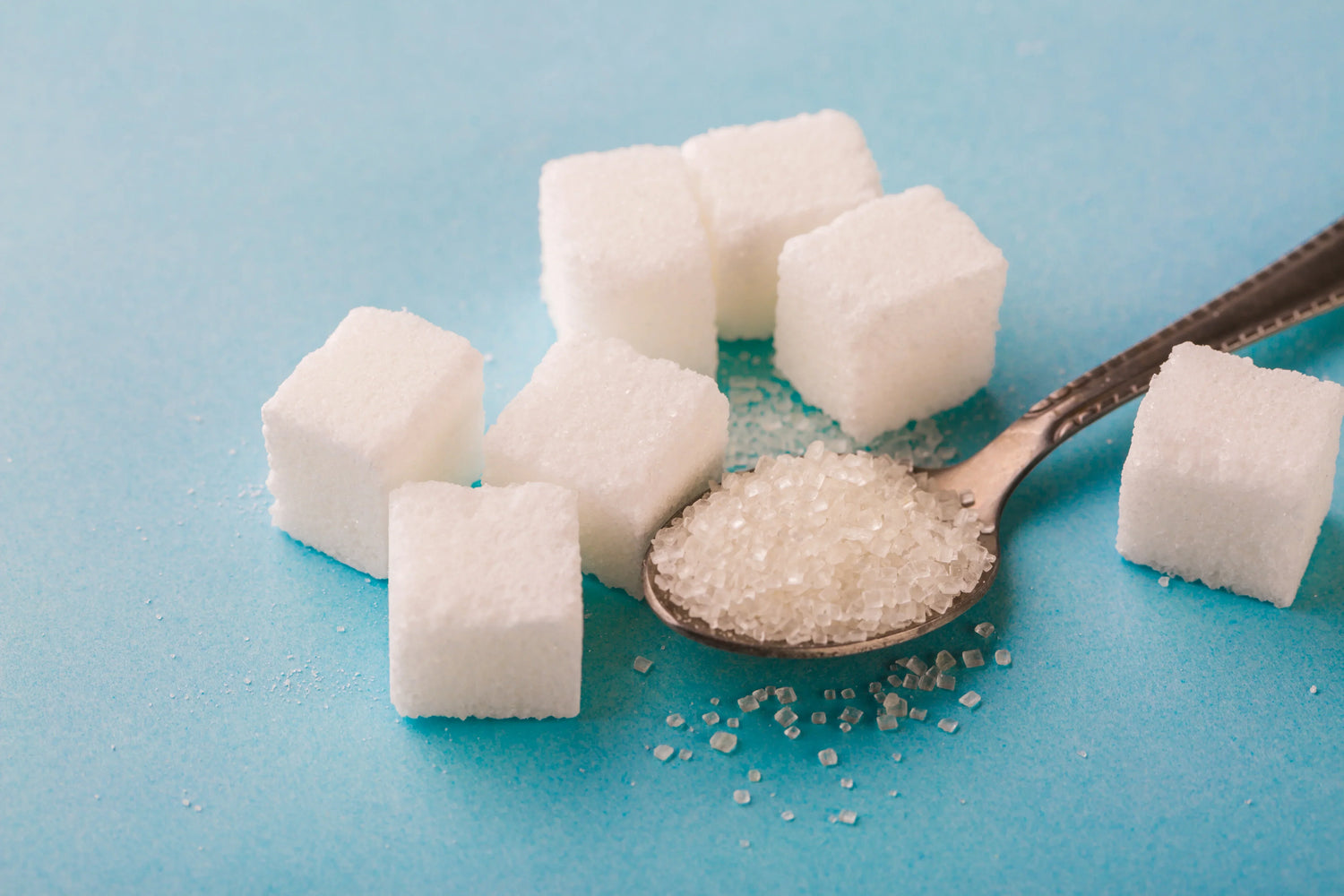Sugar has a notorious reputation in the wellness world, it’s a no brainer. But not all sugars are created equal.
You might be thinking, "Wait, aren't all sugars bad?"
It's an easy conclusion to jump to, but here's the twist: some sugars can actually be good for you! Sounds like a scam, right? But it’s not. Natural sugars, when consumed in moderation, offer health benefits. The ones people are worried about—and the cause of sugar’s infamous reputation—are added sugars. So, what's the difference between natural and added sugars, and which should you avoid?
Natural vs. Added Sugars, What's the Difference?
Natural sugars are found in whole foods like fruits and dairy. These sugars, such as fructose in fruits and lactose in milk, come with fiber, vitamins, and minerals, which slow absorption and provide sustained energy. In contrast, added sugars, like those in sodas and snacks, lack nutrients and cause rapid blood sugar spikes, increasing the risk of obesity, diabetes, and heart disease.
Added sugars include high-fructose corn syrup, table sugar, honey, and agave. These are often hidden in foods like salad dressings, yogurt, granola, and sauces. Be wary of sugar disguised under names like sucrose, glucose, maltose, molasses, and more.
Types of Sugars
-
Natural Sugars
Found in fruits, vegetables, and milk. These sugars are healthier as they are part of nutrient-dense whole foods. Fibre in fruits and protein in milk help moderate sugar absorption.
-
Modified Natural Sugars
Derived from natural sources but require processing (e.g., coconut sugar, raw honey, pure maple syrup). They retain some nutrients but still affect blood sugar levels.
-
Processed or Fake Sugars
Highly refined sugars like table sugar, high-fructose corn syrup, and agave nectar. These lack nutrients and can strain the liver.
Sugar’s Impact on Health
Excessive refined sugar contributes to weight gain, insulin resistance, type 2 diabetes, and heart disease. Artificial sweeteners, like aspartame and sucralose, are alternatives but their safety is still debated.
Tips to Manage Sugar Cravings
-
Distract yourself with activities
When that sugar craving hits, it’s easy to head straight for the pantry, but try distracting yourself with something fun instead! Take a quick walk around the block, stretch it out, or put on your favorite playlist and get your groove on. It’s amazing how a little movement or a catchy tune can shift your focus and help you shake off that sweet tooth.
-
Choose healthy snacks
If you really need a snack, go for something that keeps you fuller for longer, like nuts or seeds. They're packed with healthy fats and protein that’ll satisfy your cravings without spiking your blood sugar. Plus, they’re great for your skin, helping you maintain that healthy glow. The perfect snack when you need something delicious and skin-friendly!
-
Opt for fruit over sugary snacks
Craving something sweet? Instead of reaching for that candy bar, go for a piece of fresh fruit. Nature’s candy is loaded with vitamins, fiber, and natural sugars that won’t send your energy levels on a rollercoaster. Try an apple with a dollop of almond butter or a handful of berries for a guilt-free treat!
Sugar Substitutes: Sweetening the Deal Without the Guilt
If you're trying to reduce sugar intake but still crave something sweet, you’re not alone. Thankfully, there are a variety of natural sugar alternatives available that can satisfy your cravings without sabotaging your health goals. Here are three popular options to consider:
-
Stevia: The Zero-Calorie Sweetener
Stevia is a plant-based sweetener that comes from the leaves of the Stevia rebaudiana plant. It has gained popularity as a sugar substitute because it provides sweetness without adding any calories. Unlike regular sugar, stevia doesn't affect blood sugar levels, making it a great option for people with diabetes or those looking to manage their weight. Plus, it’s several hundred times sweeter than sugar, so just a small amount can go a long way!
Stevia also has antioxidant properties, making it a healthier choice compared to processed sugars. You can find it in liquid, powder, or tablet form, and it works well in beverages, desserts, and baked goods.
-
Monk Fruit: A Sweet Taste with No Guilt
Monk fruit, also known as luo han guo, is another natural sweetener that has been used for centuries in traditional Chinese medicine. It’s derived from the fruit of the monk fruit plant, and like stevia, it provides sweetness without the calories. Monk fruit extract is sweetened by compounds called mogrosides, which are also known for their antioxidant and anti-inflammatory properties.
Monk fruit has a clean, sweet taste without the aftertaste often associated with some artificial sweeteners. It can be used in a variety of recipes, from beverages to baked goods, and is a great way to reduce sugar intake without sacrificing sweetness.
-
Jaggery: A Natural Sugar Alternative
If you’re looking for a less processed, more nutrient-dense option, jaggery might be a good choice. Jaggery is an unrefined sugar made from sugarcane or palm sap and is a common ingredient in many traditional cuisines. Unlike white sugar, jaggery retains trace amounts of minerals like iron, magnesium, and potassium, giving it a more complex flavour and nutritional profile.
While jaggery does contain calories and carbohydrates, it’s still a better alternative to refined sugar because of the extra nutrients it provides. It’s particularly popular in India and other parts of Asia, where it’s used in both savoury and sweet dishes.
The Sweet Takeaway
Ready to give sugar a break for all the bad rap it's gotten? We’ve all been there, falling for the myths and exaggerated “bad” rumors. But now that we’ve cleared things up, why not share the knowledge? Let’s stop spreading myths and start enjoying natural sugars every now and then. After all, life’s too short to fear everything sweet.
